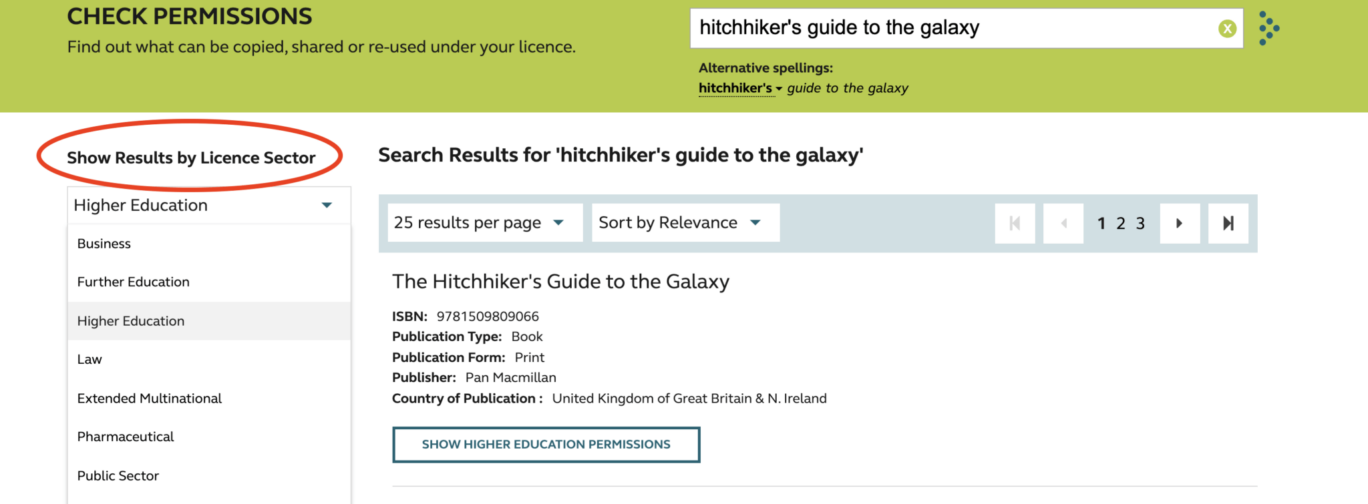Copyright basics
It is important to understand how copyright rules affect what services the library can provide and what you can do with published material
Copyright law affects what you can copy as an individual and what we can make available to you through reading lists. The Trust has two separate UK copyright licences for text-based material, one for higher education and one for NHS work. How much can be copied depends on your role at the Trust and the intended use of the material: studying or teaching will have different limits to sharing material with NHS clinical colleagues.
All copied material must be for non-commercial purposes. Remember there can be financial penalties for breaking copyright law, so please contact the library if in doubt. The guidance on this page does not constitute legal advice.
Students and tutors
Copying for higher education from books, magazines and journals:
- books – one whole chapter or extracts totalling no more than 10% of the whole work, whichever is the greater
- journals and periodicals – up to two articles from a single journal issue or up to a whole issue if it is devoted to a particular theme
- read more about copyright for higher education on the Copyright Licensing Agency website
Clinical staff and trainees
Copying for NHS work from digital and print books, magazines and journals:
- books – copy up to one chapter or 5% of a book, whichever is the greater
- journals and periodicals – up to two articles from a single journal issue
- you can share copies with NHS colleagues by email
- you can store copies on a local PC or on a secure network
- read more about copyright for NHS England on the Copyright Licensing Agency website
Checking copyright yourself
For books, journals and other written material, you can use the Copyright Licensing Agency Check Permissions Tool. It will show whether a work can be photocopied or scanned, but you will still be limited to the amounts specified for higher education or NHS uses. Scanning of copyrighted material should only be carried out by library staff, so contact us if you are planning on making a scan.
To use the tool, you will need to make sure you are checking for the correct usage. So in the ‘Show Results by Licence Sector’ options, choose ‘Higher Education’ for studying or teaching, or ‘Public Sector’ if you are looking to use the material in clinical work. The screenshot below shows the Check Permissions tool in use.

Library ebooks
Our licences with some individual publishers and suppliers mean you can download more than the 5% or 10% that would be available normally for NHS or higher education use. It varies between publishers, but options include downloading a whole book or multiple chapters. Some ebooks limit the number of pages you print or download and you will get a message on screen telling you how many, but you might be allowed more when you next log in. You will need a Shibboleth login to use library ebooks.
Reading lists
Copyright restrictions mean students can only download items from reading lists for a course on which they are enrolled. Occasionally, we cannot provide links to some material through online reading lists. This can particularly be a problem when a book has not been published as an ebook or a journal is not available online, as our higher education copyright licence only allows us to scan one chapter or 10% of a book, or one article per issue of a journal. When material is not available, we will add a note to explain why. In those instances, you will need to consult the original print version of the item.
Box of Broadcasts for video and audio
Box of Broadcasts (BoB) allows you to stream recordings of TV shows, radio programmes and films for learning and teaching. BoB will only work in the UK as the Educational Recording Agency (ERA) licence it uses does not apply in other countries. You can show whole programmes or clips in teaching sessions but it is important the people watching or listening are students or staff at the Tavistock and Portman or another institution that has an ERA licence. Showing material from BoB to a public audience is not allowed. Find out more about copyright on the BoB website or contact the library.
Teaching and presentations
Copyright legislation includes exceptions such ‘Illustration for Instruction’ and ‘Quotation’ that may allow you to use material in teaching or presentations when it is not covered by one of our licences. Deciding whether it is possible to use material under legal exceptions can be complex and has specific requirements, so please see our copyright page for tutors for more information.